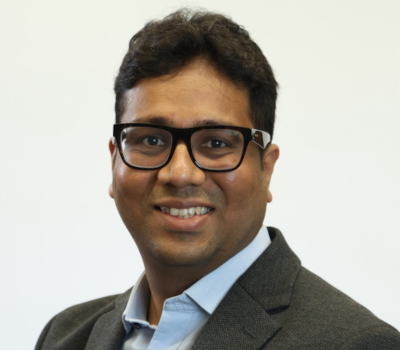In today’s fast-evolving procurement landscape, the role of procurement leaders has expanded far beyond traditional cost containment. Few professionals embody this evolution as clearly as Parag Jain, a seasoned expert with over 15 years of experience in procurement and management consulting, particularly in the healthcare sector.
As a Certified Professional in Supply Management (CPSM), Parag has led transformative initiatives across life sciences, healthcare, and other complex industries—delivering measurable value through strategic sourcing, digital procurement, and operational efficiency.
In this exclusive Q&A, Parag shares his personal journey into procurement, his perspective on how the function is perceived, and why he believes procurement is uniquely positioned to drive both resilience and innovation. His insights offer a compelling glimpse into the mind of a modern procurement leader dedicated to aligning supply strategies with business outcomes and patient care.
Parag, what do you love about Procurement?
What I truly love about Procurement is the strategic influence it gives me in shaping the direction and efficiency of an organization—especially in a sector as critical as healthcare. With over 15 years of experience, I’ve come to appreciate how Procurement is much more than just cost savings. It’s about building resilient supply chains, ensuring continuity of care, and driving value that directly supports patient outcomes.
I enjoy the complexity of the role—the need to balance cost, quality, risk, and compliance while working cross-functionally with stakeholders, clinicians, and vendors. Each negotiation, each sourcing decision is a puzzle that requires both analytical thinking and relationship management.
What keeps me passionate is the impact: Whether it’s streamlining inventory for a hospital network or negotiating a critical pharma contract, I know my decisions contribute to real-world results.
In short, Procurement allows me to combine strategy, ethics, and execution—all in one function that’s deeply aligned with business goals and patient care. That’s incredibly fulfilling and at the same time there’s always something new to learn, improve, and innovate on.
How did you get into Procurement? Was your perception of procurement different to the reality?
My journey into Procurement began during my tenure as a management consultant at GEP. Initially, I was drawn to the role by the opportunity to work in a consulting firm on diverse projects across various industries. At the time, I perceived Procurement primarily as a transactional function focused on cost savings and vendor negotiations.
However, as I delved deeper into the field, I discovered that Procurement is far more dynamic and impactful than I had anticipated. It’s the only function in an organization which touches all other functions (Legal, Finance, HR, Marketing etc.) and plays strategic role at intersection of business strategy, data analytics, negotiation, and innovation.
So yes, my perception was initially limited—but the reality has been far richer, and that’s what’s kept me motivated and committed to Procurement as a long-term career.
How do you feel procurement is perceived in general? Why is this?
Traditionally, procurement has often been perceived as a support or back-office function—mainly focused on purchasing, cost-cutting, and compliance. In many organizations, it’s seen as reactive rather than strategic, which I believe stems from a legacy view where procurement’s role was limited to transactional activities.
However, that perception is gradually shifting—especially in complex and regulated industries like healthcare. Events like the pandemic and increasing supply chain disruptions have brought procurement to the forefront. Business leaders now recognize that procurement plays a critical role in ensuring supply continuity, managing risks, and driving sustainability and innovation.
That said, there’s still work to be done. Elevating procurement’s perception requires consistent delivery of strategic value, better communication of outcomes, and embedding procurement in broader business planning. Throughout my career, I’ve made it a point to bridge this gap by aligning procurement closely with business objectives and demonstrating that it’s not just about savings—it’s about resilience, agility, and value creation.”
Do you need to be a qualified procurement practitioner to be a successful member of a procurement team?
In my experience, formal qualifications like CIPS or an MBA in Supply Chain can certainly provide a strong foundation—they offer structured knowledge around procurement strategy, contract law, category management, and risk mitigation. However, I don’t believe qualifications alone define success in procurement.
What truly makes someone successful in a procurement team is a combination of analytical thinking, commercial acumen, relationship-building, and the ability to adapt and collaborate across functions. When I started my career at GEP, I was learning everything on the job—real-world problem solving, client interactions, and strategic sourcing frameworks. That hands-on experience shaped my career far more than any textbook could.
That said, qualifications can complement practical experience. For someone early in their career, it might provide credibility and a knowledge boost. But success ultimately comes from curiosity, resilience, and delivering value—whether or not you start with a formal certification.

